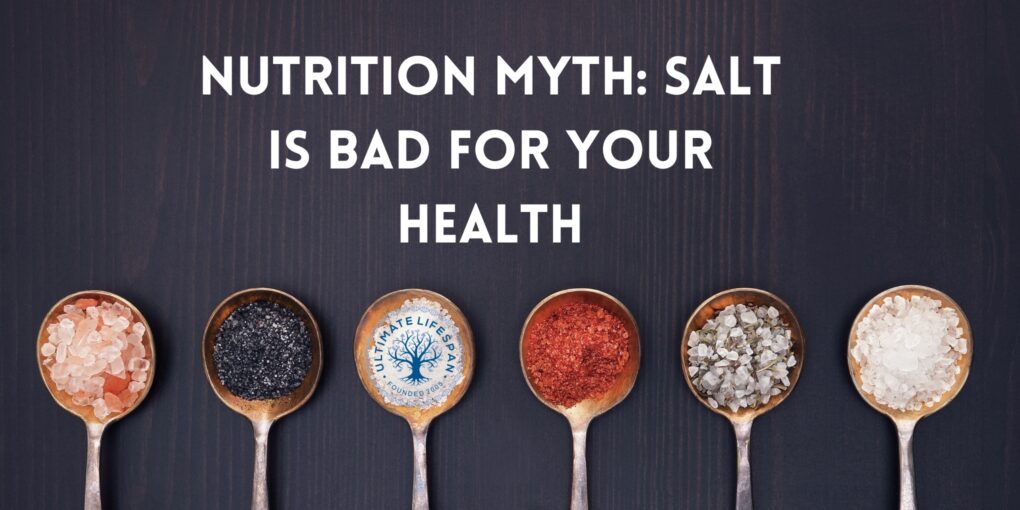Salt: The Forgotten Essential for True Health
Unlike modern salt-weary humans, ancient cultures often saw salt as a sacred substance. Roman soldiers were even paid in it, which is where the term “salary” originates. This mineral is not only ancient but vital—your body cannot live without it. Yet, today, salt often gets a bad rap. However, the real problem with “too much sodium” comes not from the salt itself but from the refined, chemically altered versions found in processed foods.
The key to unlocking the benefits of salt lies in switching to natural, unrefined sea salt. When you prepare meals at home with this kind of salt, you're getting a substance rich in over 80 trace minerals. Unrefined sea salt supports everything from hydration to nervous system function. What's more, your body knows how to handle it—and it will even signal when it's had enough. Real salt is essential not only for seasoning your meals but for optimizing your health.
Refined vs. Unrefined Salt: A Crucial Difference
Refined table salt undergoes heavy processing that strips it of all minerals except sodium chloride. It’s then treated with anti-caking agents and sometimes synthetic iodine. This form of salt lacks the naturally occurring minerals that unrefined salts offer, which makes it nutritionally incomplete.
Unrefined sea salt, on the other hand, retains its full mineral content—minerals that work synergistically in the body. Varieties like Celtic sea salt, Himalayan pink salt, and Maldon sea salt not only have distinct flavors but also different mineral profiles. These natural salts support bodily functions in ways refined salt cannot, making them a smarter choice for everyday use.
The Surprising Benefits of Salt
1. Parasite Prevention
Parasites thrive in unbalanced environments, and one of the body’s defense mechanisms against them is maintaining a balanced mineral profile. Unrefined sea salt helps by providing trace minerals that support digestive health. A well-mineralized digestive tract is less hospitable to parasites, as natural salts encourage the production of stomach acid. Strong stomach acid acts as the body’s first line of defense, breaking down food properly while creating an acidic environment that discourages parasite survival. Some traditional cultures even use salt-water flushes as part of parasite-cleansing protocols, a testament to salt’s role in a well-functioning gut.
2. Boosting libido
Salt's role in hormone regulation is often overlooked, but it’s crucial for maintaining healthy sexual function. Sodium is necessary for the adrenal glands, which produce sex hormones like testosterone, estrogen, and progesterone. Low sodium levels can stress the adrenals, leading to hormone imbalances that may reduce libido. By incorporating unrefined salt into your diet, you support adrenal health and, in turn, your body’s ability to produce the hormones that influence sexual desire and performance. A pinch of sea salt in a glass of water can even help restore energy and boost mood—both important factors in a healthy libido.
3. Better Sleep Quality
Salt can also play a surprising role in achieving deeper, more restful sleep. Sodium helps manage stress hormones like cortisol, which can keep you awake at night if not properly regulated. Inadequate salt intake can trigger adrenaline spikes during the night, leading to restless sleep or frequent waking. Having a small amount of sea salt before bed—such as a pinch in warm water—can help balance hormones and signal your body to relax, resulting in improved sleep quality.
4. Preventing Muscle Cramps
Muscle cramps are often a signal that your body is low on key electrolytes, with sodium and magnesium being some of the most crucial. Sodium works alongside potassium, magnesium, and calcium to maintain muscle function and fluid balance. When sodium levels drop too low, especially during intense physical activity or sweating, muscles may begin to cramp due to the imbalance in nerve signaling. Unrefined sea salt, rich in naturally occurring minerals, can help replenish sodium levels and improve hydration. Adding a pinch of sea salt to water or meals can be a simple yet effective way to reduce the frequency and intensity of muscle cramps.
Why Your Body Craves Salt
Ever notice how you crave salty foods after intense exercise or a hot day? That’s your body signaling its need for minerals and electrolytes. Salt cravings often indicate a lack of essential nutrients. Contrary to popular belief, the body doesn’t crave salt because it’s “addicted”; rather, it craves salt because it needs it. Sodium is vital for nerve transmission, muscle contraction, and cellular fluid balance.
Moreover, salt works hand-in-hand with potassium to maintain this balance. While potassium helps the body excrete excess sodium, too little of it can lead to sodium retention and high blood pressure. This is why consuming unrefined salt along with potassium-rich foods, like avocados, bananas, and leafy greens, promotes optimal balance.
Busting the Myths
Myth 1: “Salt Causes High Blood Pressure.”
The real story is more complex. While excessive intake of refined salt in processed foods can contribute to high blood pressure, moderate amounts of unrefined sea salt can actually have the opposite effect. Some research shows that too little salt may trigger the body to hold onto water and sodium as a protective mechanism, potentially increasing blood pressure.
Myth 2: “Low-Sodium Diets Are Always Healthier.”
Overly restricting salt can have unintended consequences, like hormonal imbalances, impaired kidney function, and reduced mental clarity. Recent studies even suggest that low-sodium diets may increase the risk of insulin resistance. The key isn’t to eliminate salt but to ensure you’re getting it from natural, mineral-rich sources and balancing it with other minerals.
Myth 3: “Salt Makes You Bloated.”
Refined salt found in processed foods can indeed cause bloating by triggering water retention. However, natural, unrefined salt helps the body manage fluid balance more effectively, supporting proper hydration and reducing bloating.
Incorporating Real Salt Into Your Diet
Here’s how to make the most of natural sea salt:
- Use it generously: Add unrefined sea salt to vegetables, stews, or even a morning glass of water to boost hydration and minerals.
- Stay hydrated: Real salt encourages better water retention, so ensure you drink enough water to maintain balance.
- Balance with potassium-rich foods: Include plenty of fruits and vegetables to support sodium balance. Avocados, sweet potatoes, and bananas are great choices.
- Check labels: Be mindful of packaged foods, which often contain refined salt. Opt for whole, fresh foods whenever possible.
- Try different varieties: Experiment with Himalayan pink salt, Celtic sea salt, or black lava salt to find the flavors and textures you enjoy most.
Salt for Health, Not Just Flavor
It's time to view salt not as an enemy but as an ally in achieving true health. Traditional wisdom recognized its benefits, whether it was Romans trading with it or indigenous cultures preserving food with it. Salt is vital not only for digestion and nerve function but also for boosting libido, preventing parasites, and improving sleep quality.
Final Thoughts: Embrace Real Salt
Switching to unrefined sea salt is a simple yet powerful way to improve your overall health. It aligns with how our ancestors consumed salt—mineral-rich, unprocessed, and balanced with natural foods. Make the switch today, and let your body experience the difference.
Sources
Lee BH, Yang AR, Kim MY, McCurdy S, Boisvert WA. Natural sea salt consumption confers protection against hypertension and kidney damage in Dahl salt-sensitive rats. Food Nutr Res. 2016 Dec 20;61(1):1264713. doi: 10.1080/16546628.2017.1264713. Erratum in: Food Nutr Res. 2017 Mar 20;61(1):1300375. doi: 10.1080/16546628.2017.1300375. PMID: 28325999; PMCID: PMC5328355.
Anwar, F., Omar Asar, T., Al-Abassi, F. A., Kumar, V., & Alhayyani, S. (2022). Natural sea salt in diet ameliorates better protection compared to table salt in the doxorubicin-induced cardiac remodeling. Journal of Taibah University for Science, 16(1), 1213–1224. https://doi.org/10.1080/16583655.2022.2154491
Melinda Wenner Moyer. It's Time to End the War on Salt. Scientific American. JULY 8, 2011
De Santo NG, Bisaccia C, De Santo RM, De Santo LS, Petrelli L, Gallo L, Cirillo M, Capasso G. Salt: a sacred substance. Kidney Int Suppl. 1997 Nov;62:S111-20. PMID: 9350697.
Meng CE, Sharifah Robiah Mohamad CW, Mohd Nasir NF, Fhan KS, Liang OH, Jian TX, Yee LK, Yeow YK, Mohd Tarmizi EZ, Mohd Roslan MR, Baharuddin SA. Mineral composition, crystallinity and dielectric evaluation of Bamboo Salt, Himalaya Salt, and Ba'kelalan salt content. Heliyon. 2023 Dec 17;10(1):e23847. doi: 10.1016/j.heliyon.2023.e23847. PMID: 38332888; PMCID: PMC10851306.



Thank you for information. I love salt but thought it was bad. Now I’ll use only the good kind.
Thank you for information. I love salt but thought it was bad. Now I’ll use only the good kind.